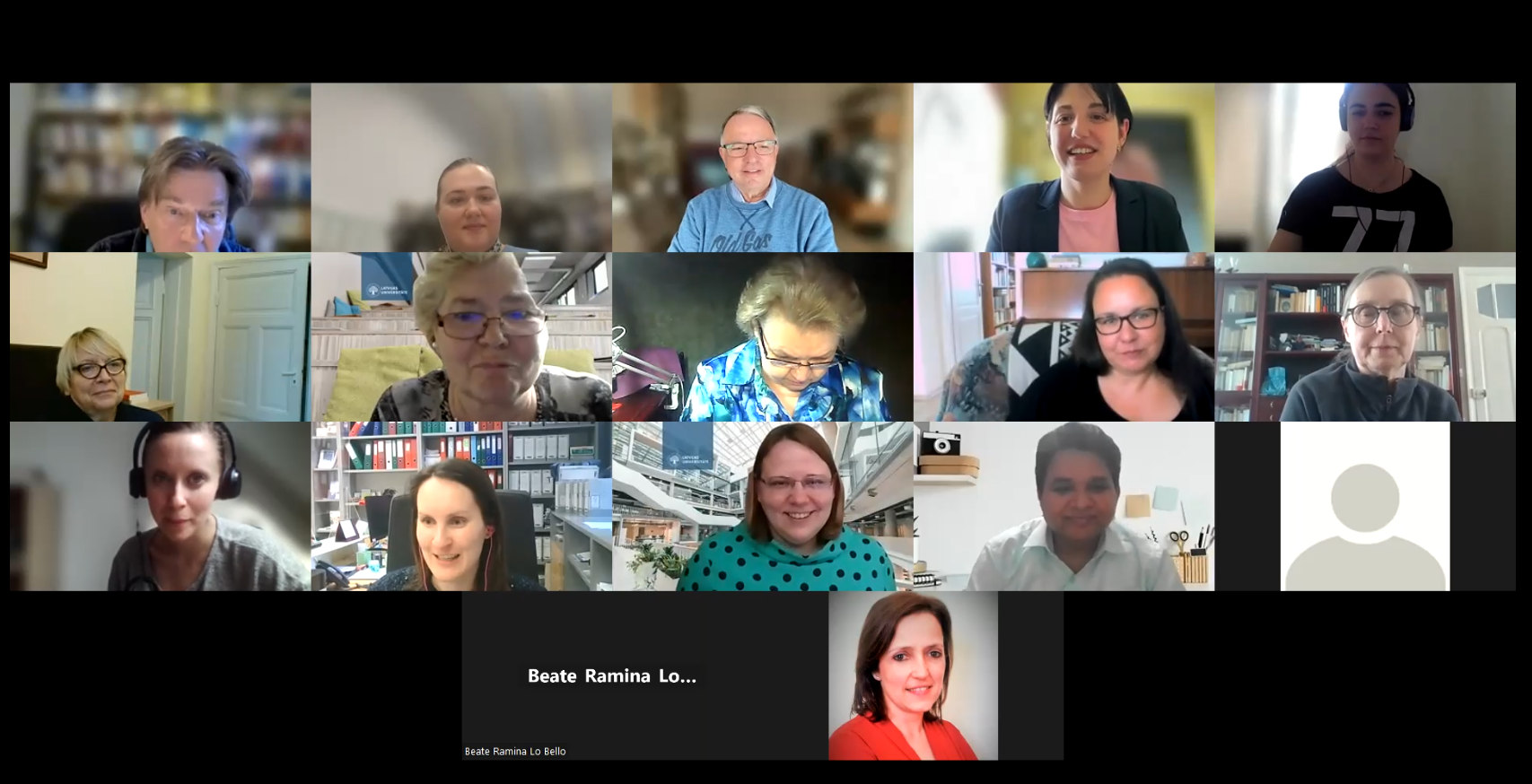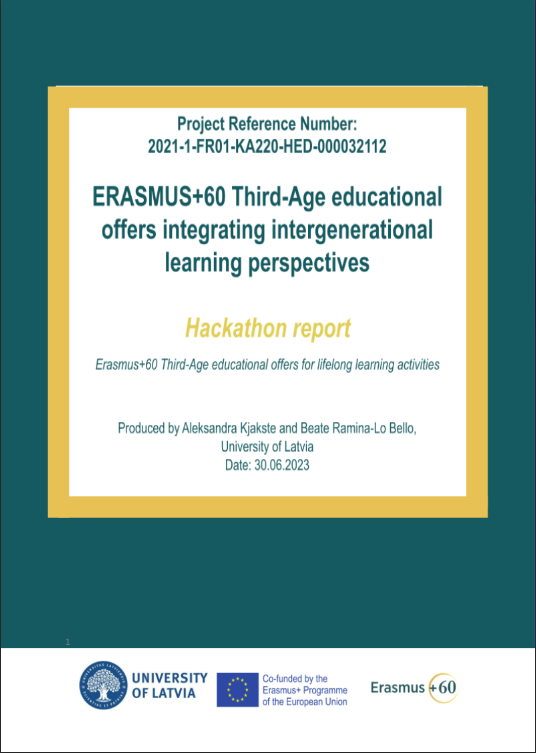You are here : Erasmus+60ENHackathon
- Partager cette page :
- PDF version
Hackathon Third-Age learning in perspectives in modern society (18th April, 2023)

On April 18, 2023, the Erasmus+60 Third-Age educational offers integrating intergenerational learning perspective hackathon was held under the leadership of the University of Latvia. The event attracted interested people from different countries of the world - Latvia, Hungary, Austria, France, Portugal, Czech Republic, and India. In total, it was attended by more than 34 participants among stakeholders such as HEIs as well as local, regional, national, and international educational authorities and other organizations reflecting the partner countries.
To promote a high-quality exchange of opinions, Iveta Cīrule, who is the founder of the Senior University in Latvia, participated in her presentation at the beginning of the Hackathon. In her presentation, Iveta introduced the event participants to the concept of open innovation in senior training not only in Latvia but also on a global scale. During her presentation, Iveta Cīrule emphasized that open innovation, as an operational strategy that creates a positive impact on the lifelong learning process for seniors in the future, is a complicated concept made up of competencies, motivation, strategy, partners, and recognition of difficulties.
The second keynote speaker was Tatyana Azamatova, who is the founder of a School for Seniors. In her presentation, Tatjana emphasized the positive impact of seniors' learning. She highlighted that the population is rapidly aging, and a large part of seniors feel excluded from society, and seniors' lifelong learning is an aspect that will help fight these negative consequences.
During the event, all participants were divided into three rooms based on the main topics of the Hackathon:
-
Well-being factors of studying for seniors (knowledge and future skills to be developed);
-
Lifelong learning resources opportunities and practical resources (tools);
-
Motivation: how can we engage seniors in lifelong learning?
All participants outline the main challenges for seniors in lifelong activities through well-being factors, lifelong learning resources, and motivation. As a result of this event a recommendations for the European Commission:
- Target group/audience: given that not all seniors are active on the internet, developers of lifelong learning activities should consider how to reach the target group (i.e., the channels for dissemination);
- Social learning – learning together creates a sense of security that has a positive impact on senior well-being, leading to the conclusion that it should be social learning in the planning of any third-age lifelong learning activity;
- Integrational studies – the intergenerational approach is better perceived by seniors since it provides an opportunity not only to learn but to share your experience;
- Efficient use of resources – lessons need to be practical and go hand in hand with modern actuals. Older people have a strong need to learn digital and critical thinking skills. Offers need to be connected to reality because it's important for seniors to have "usefulness still being a part of always changing society";
- Reducing the language barrier: more receptive to third age lifelong learning activities are those developed in the national language, so there should be a focus on both national and internationalization;
➡️ Click to download the full report


